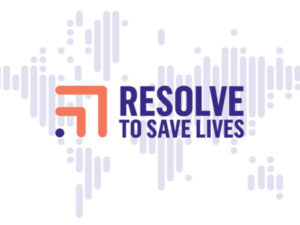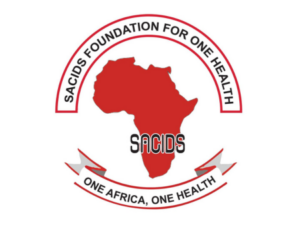
Interview with Amanda McClelland (Resolve to Save Lives)
Resolve to Save Lives aims to save 100 million lives by connecting governments, communities, and partner organizations to prevent and
SOCAP brings together social entrepreneurs, investors, foundation and nonprofit leaders, government and policy leaders, creators, corporations, academics, and beyond – to create an ecosystem to accelerate social change and investment in positive impact.
Interview with Michelle Arevalo and Tova Lobatz of Social Capital Markets LLC spoke with Jessica Kantor on January 17, 2024. Click here to read the full conversation with insights highlighted.
Jessica Kantor: Can you please introduce yourself, the organization that you’re with, and the problem that you are addressing?
Michelle Arevalo: My name is Michelle Arevalo. I am the Executive Director for Content and Strategy at SOCAP Global.
Tova Lobatz: My name is Tova Lobatz. I am the Executive Director of Strategic Partnerships for SOCAP Global. We’re an impact investing convener; we bring together investors and allocators with entrepreneurs that are doing social and environmental good through conferences and convenings.
We’re addressing several problems and inequalities within our world, and the way that we do that is through the social capital markets. We bring together investors that are interested in helping to solve those problems — like social inequalities and climate issues — with entrepreneurs who are working on solutions in hopes that they can work together to address our world’s biggest issues.
Jessica Kantor: What makes your approach distinctive?
Tova Lobatz: As far as convenings go, SOCAP is the big tent. We cover a variety of different problems and issues within the world. We convene the people who are focused on solving issues ranging from climate change to gender equality. There are lots of different tracks that we use to shine a light on the voices and people who are really building up the grassroot efforts that are making progress in these different areas.
Jessica Kantor: How are you identifying the people that you want to bring into this community?
Michelle Arevalo: We have all the actors of the ecosystem identified across capital flows.The broader problem is that there is definitely capital out there that can be used for creating impact, but all too often, it relies on existing networks and connections. However, there are solutions that don’t always get to be in front of the right decision makers and/or capital allocators, so we go looking for those solutions. We go about it two different ways. First, we connect changemakers with capital allocators, then connect capital allocators with capital holders that are looking to ensure that money flows to the right projects creating their desired impact. Then, there are the people that are part of the ecosystem that serves this chain of capital flows: the experts in impact investments, the ecosystem buildings, the government agencies, and the development agencies. It’s about creating the supports and scaffolding to make sure that these capital flows happen.
Another way to think about it is that impact investment is growing a new industry that is very fluid; one that isn’t 100% in the for-profit sector. There are many impact investment funds that are not necessarily seeking market return, or impact investments that are 100% philanthropic and are just happy to support the creation of new markets through their grants.
It’s about getting the different actors across the continuum of ‘for-profit’ to ‘impact first’ to come together and support each other so we can see an ecosystem that produces new, innovative, equity-driven solutions for all.
Jessica Kantor: In terms of creating those solutions, what are your measurements for success? What evidence do you have that signals you are making progress?
Michelle Arevalo: When you’re talking about convening as an impact, you are looking to ensure that there were new connections made. We’re looking to prevent the classic revolving door syndrome where you have the exact same people come and show up. You want to make sure that you’re constantly attracting new people to this big tent. Our surveys usually ask participants, “How many new people did you meet? And of these people, how many do you think you’ll actually follow up with in a month/six months/a year?” That’s our indicator that we’re actually connecting new people and growing this ecosystem. .
Our other measurements are more program specific. For example, within SOCAP, we have a social entrepreneurship program. We measure things like how many new investors were introduced to different entrepreneurs, whether entrepreneurs that participate in our program are actually increasing their revenue, what they project in terms of impact, that sort of thing.
Jessica Kantor: Can you share an example that illustrates the impact of your work?
Michelle Arevalo: For example, Liberation Ventures that does reparations work and increases reparation ecosystems within the United States.. which is huge. Reparations work is a very new topic within the United States. The United States has a very specific history around reparations, and people can sometimes have very hard reactions when they hear the word. Liberation Ventures has been laying the groundwork for reparative work.
Their organization came to be because the founder was giving a talk at a panel, and one of the other participants was a capital holder. He found her work and thinking to be systemic and prompted her to start a fund. They started a partnership that is now Liberation Ventures to offer grants for reparations work across the United States.
When interviewed about how they got started, they shared that they met at SOCAP, so that’s a pretty clear line. Not all of the lines are that clear because building networks is never a straightforward story, but this one in particular is a simple example that shows what can happen at our convenings.
Jessica Kantor: Are there any challenges that you’re currently facing that you haven’t been able to overcome or solve just yet?
Michelle Arevalo: There’s always the challenge of making SOCAP global enough. That has to do with a lot of realities, but a large part of it is the visas and costs required to come to the United States. This makes it really difficult for more global participants to attend. We’ve solved some of that through funding; actually, Skoll Foundation understood that challenge very well and supported that effort through a global voices fund to help us bring more global voices to SOCAP. That’s helped a lot.
Beyond that, we’ve been experimenting with different ways to bring all the deadlines a little bit earlier, so people can plan for it better. We’re also working with a lot of regional and sub-regional networks to help promote SOCAP with their members, associations and ecosystems. But it’s not solved yet. We owe it to ourselves and to our community to continually make it more global.
Jessica Kantor: Have you had experiences where because of geopolitical issues, people who would be really strong assets to conferences aren’t able to participate? If so, do you work with governments to help them come in? How do you go about addressing that?
Michelle Arevalo: Unfortunately, just last year, we almost lost a keynote speaker. He almost didn’t make it because the Visa Office had taken his passport, and there was no place to call to try to figure out what was going on or when he would get it back. Sometimes we try to go through diplomatic channels, but we also find that to be unfair because why should they get ahead of others?
Overall, it’s a broader issue that’s beyond our existing mandate. Immigration policies can be vague and it escapes us, so we work to make sure that we can help them get what they need. But there’s always a few. Another example is a great speaker we lost from India. She just couldn’t get a visa appointment in time and decided it would be best to cancel her participation. In that case, she lost her flight, so these issues come with monetary loss as well.
Jessica Kantor: Are you working towards advancing system level change? If so, how are you doing that?
Michelle Arevalo: We’re actually thinking and talking about ‘systemic change’ being our theme for this year. Systems thinking requires people working beyond silos, and our big tent conferences are intentionally designed to bridge those silos. That’s the primary way we’re working towards systems change. It’s how we differ from other conferences that are very specific in certain areas; like climate change where they might talk about carbon markets or geek out on policy things.
But in those situations, they might never meet someone in our racial justice track who might be able to help them think beyond the usual ways of solving climate change. Systemic change starts in those intersections. It’s when someone that is very focused on gender and someone that is very focused on water meet over lunch or coffee at the conference and sparks fly; it helps people think beyond their specific silos, and we trust that all kinds of solutions are coming through in that way.
Jessica Kantor: Are you tracking that? You mentioned you do a post-conference survey; are you measuring to any higher degree?
Michelle Arevalo: Unfortunately, we don’t. It’s a good question. We could start tracking how many people from outside their usual worlds they’ve met, maybe. We haven’t yet, but it would be an interesting measure of how much we’re supporting systems change.
Tova Lobatz: One of the challenges that we, and other conveners, have in measuring impact is that it can be hard to get a clear and defined look on whether we should measure deal flow, connection, and/or products that have been useful within partnerships.
Jessica Kantor: What do you think is most needed from other partners in the space in order for SOCAP to not only continue to be successful, but to scale and grow?
Michelle Arevalo: That’s a really important question for us. In previous iterations, SOCAP has thought that scaling meant going beyond the convenings world and going into a media platform, whereas, in this iteration, SOCAP has gotten really good at convenings. Once we get that right, I think our focus will become on how to make convenings a reality for sub-regional meetups: having a regional version in the local languages so we can spread our ‘magic’ to people who would not otherwise be able to come and benefit from participating this way in San Francisco. I’m not saying that as a commitment for our future strategy, but it is where we imagine scale and go.
Jessica Kantor: What are some of the efforts that you’re working on right now in order to perfect the iteration of SOCAP?
Michelle Arevalo: SOCAP is a strange animal in the sense that we are an independent convening-only company. There are a few others that are like us, but typically, they’re industry specific and have a business model that is pay-to-play. I’m not saying that as a bad thing, but it does present a lot of challenges for us in terms of developing a business model. A big part of ‘getting it right’ is getting the business model right so that it allows us to maintain that independence.
There are many other impact convenings, but they’re usually held by institutions/organizations that have a clear agenda — never a bad or evil agenda, always a good one, but it’s there. Conversations often move towards their five-year goals. By being independent, we’re able to move the conversations to what we see is emerging in the impact sector. That means we need to remain independent, which requires that we have a very clear business model.
Another part of getting it right is ensuring we have good governance around content — what gets on stage — by balancing diverse voices with expert voices. We’ve turned SOCAP into that agenda building convening that allows people to move impact topics forward that might not have otherwise been seen. We sell out each year. In the end, people vote with their dollars and time. If more and more people want to continue to spend their time with SOCAP, that must mean we’re doing something right.
Jessica Kantor: I’ve done a couple of other interviews with organizations whose main mission is to bring people together in order to encourage collaboration, and one thing they’ve repeatedly mentioned is how they seem to still find their way back into their silos even when they get into the rooms. Are you finding that same situation at your events? If so, what are you doing to combat that?
Michelle Arevalo: Actually, I wouldn’t think of it as a problem. People convene for different reasons, and a convening can be helpful for change agents in many different ways. Of course SOCAP is the place to meet people who you wouldn’t have otherwise, but if you’re like me… I’m in Ecuador. I have three colleagues in the same country as me, but we only see each other every once in a while. Going to a place like SOCAP is like going home; it’s like finding your tribe.
It’s super valuable to be able to talk to others like me and get opinions, ideas and resources that I could bring to my own work and partners. There’s a lot of value in that. People know how to get what they’re looking for in a convening; some people want to gripe, or maybe, some people just need a break. They might not have colleagues wherever they are, and SOCAP can be an opportunity for them to meet up. I have no qualms about that.
Of course there’s also the capital flows aspect of it. If your focus is on fundraising, you’re probably spending most of your time with those investors. But also, if you’re from a historically marginalized or underserved group that tends to never get investments, you’ll probably want to hang out with your fellow female founder to find the strength to go tap on that investor’s shoulder and say, “Hey, you need to invest in me.”
That’s how communities work; we have to be respectful and not think of ourselves as the architects of connection. We have to be a little bit okay with not being able to track the impact we’re making and just build it. At our last SOCAP, someone said they measured the quality of a convening by how many hugs they get per fifteen-minute window. They said we broke all records.
In a professional setting, a hug means so much more. It means.. I trust you; I appreciate you; I feel you. And hey, maybe that’s a measure of impact because building trust is way beyond a business card swap.
Jessica Kantor: That’s wonderful. How do you see the work evolving over the next five years?
Michelle Arevalo: It’s something that we are all asking ourselves. I think that there’s been a proliferation of impact convenings. More and more funders are putting money into bigger projects, so they set aside X amount of dollars for the annual convening of Y that creates more silos. That’s not necessarily a problem, but it is problematic because you have people that take very few trips a year for convenings, and there becomes less of a chance that they’ll come to spaces like SOCAP to break those silos.
It’s not really a problem, but more of a challenge that nobody is thinking systematically about. More and more, we’ll see if industry will become hyper architectural and prescriptive about what they’re doing versus just holding space and letting people do whatever they need.
Funders will also have to come to terms with the fact that it’s very hard to measure convenings, but maybe they’ll put in the dollars into measuring, tracking and building complex network mapping. Hopefully that data actually finds and validates what people are feeling and seeing.
The time and resources people spend coming to SOCAP in itself is validation. For me, that’s a really good measure of the impact that we’re making. Some things you just can’t measure, and we may have to learn to be okay with it. It’s always a challenge to demonstrate a new business model. That’s the challenge. How do we maintain and fund the teams that hold the space by dedicating their lives to making it happen?
Jessica Kantor: Thank you so much for taking the time to talk with me today.
Click here to read the full conversation with insights highlighted.
Jessica Kantor is an independent journalist specializing in health, human rights, and social impact. Her work can be found in Fast Company, Healthcare Quarterly, The Las Vegas Review-Journal, and others. She is a living kidney donor.
* This interview has been edited and condensed.
Learn about other ecosystems working on driving social change.


Resolve to Save Lives aims to save 100 million lives by connecting governments, communities, and partner organizations to prevent and

Hundreds of investigative reporters, editors, and technologists are exposing organized crime through the Organized Crime and Corruption Reporting Project. “It

Imperative 21 works to reimagine the relationship between the private sector, government, and civil society to improve outcomes for the

Brand New Bundestag advocates for progressive policies in Germany. Maximilian Oehl of Brand New Bundestag spoke with Jessica Kantor on

HoonArts is a social impact enterprise focused on bridging the gaps between the West and Central Asian art and culture.

The Southern African Centre for Infectious Disease Surveillance Foundation for One Health (SACIDS) is a ONE HEALTH Virtual Institute that